On the last week of October of 2015, whilst working as a software engineer for the film industry in Auckland, New Zealand, my company announced that we were going to host a full-day “hackathon”. A hackathon is an event in which a large number of people meet to engage in collaborative computer programming.
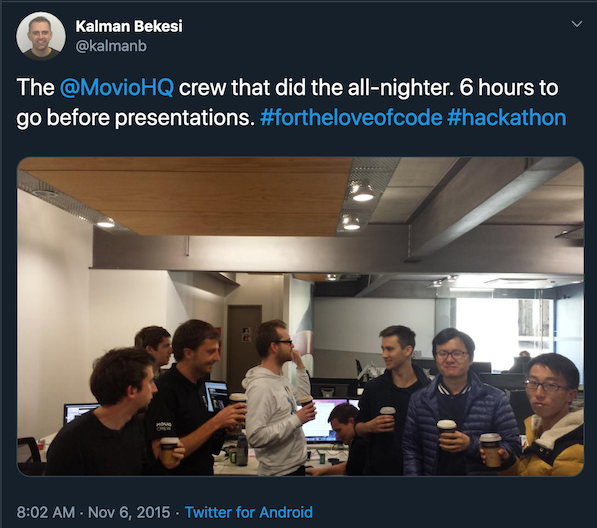
My favourite hackathon idea was to come up with a game similar to chess, but with a large board and no turns, that is, a real-time chess World game! I was incredibly excited, so I gathered my dream team of engineers for an impromptu meeting where I pitched the project. Unfortunately, no one liked the idea. The most senior engineer on the team rightfully pointed out that such a project would take months, and we only had 24 hours. I was disappointed, but nowhere near giving up!
On November 2nd, 2015, I started a timid open source project code-named “ostinato”. Ostinato is an italian noun that plays with the adjective “obstinate”, meaning “stubbornly refusing to change one’s opinion or chosen course of action, despite attempts to persuade one to do so”, which is exactly what this project was all about. At the time, the project was an attempt to build a generic engine for board games:
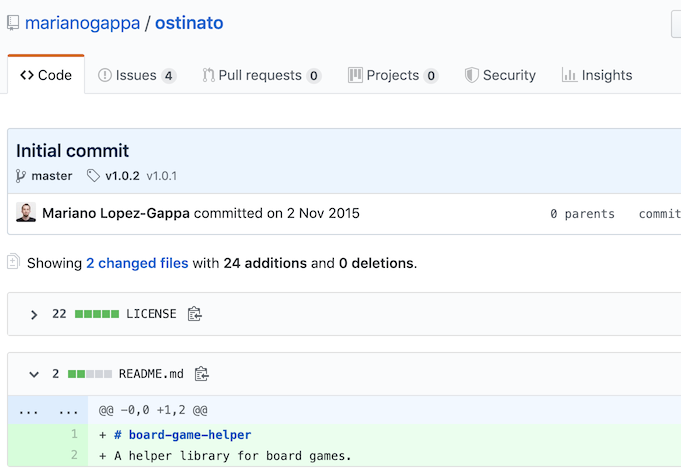
It turned out that making a computer engine for chess was not quite a walk in the park. Over the next 5 months I spent most of my free time working on it; notably the whole Easter long weekend:
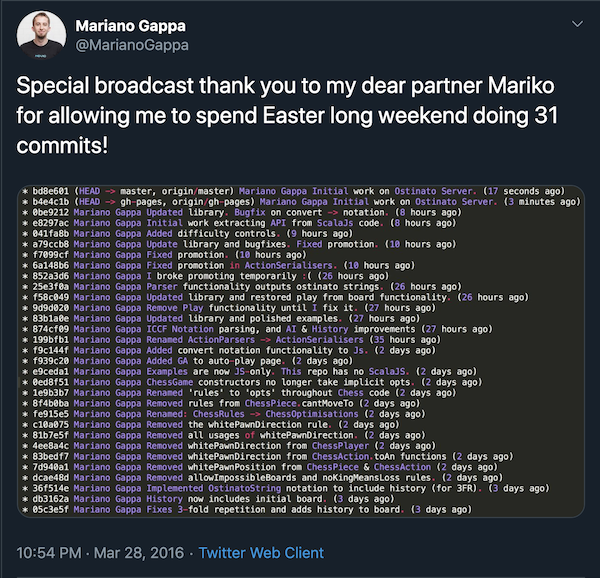
By the time the bulk of the development was finished, ostinato was quite a unique project. Sure, there were faster, smarter, more beautiful chess sites available on the Internet, but ostinato was one of the few free and open source tools online that would allow people to input chess matches from a book or a magazine and playing them back on screen, or converting them to different notations.
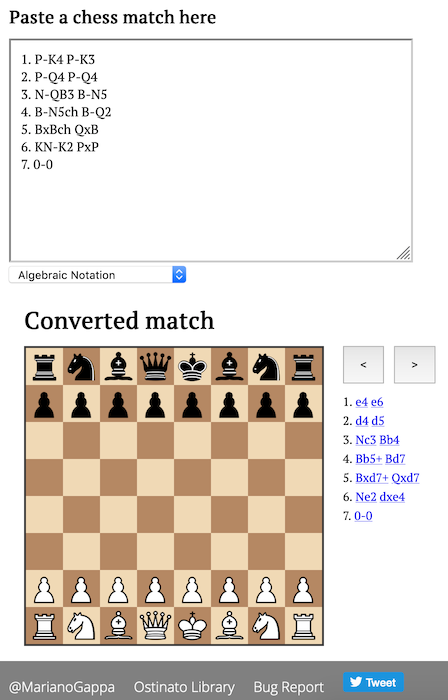
From a technical standpoint, it is still the only publicly available chess engine I know that works both as a server and standalone within the browser. On March 27th, 2019, I realised that the top Google result for converting chess notations is the ostinato library!
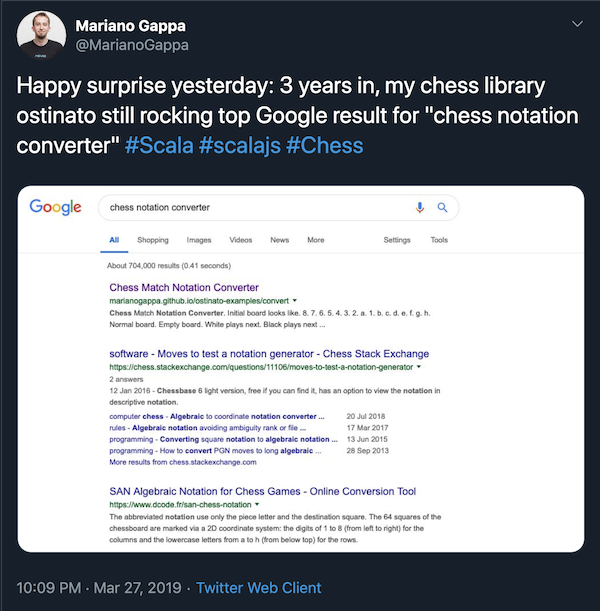
On September 12th, 2017, I received an email from a 79-year-old man from San Pedro, California whose name was Ken Pauley. In it there was a polite request for fixing a few issues with the conversion from Descriptive to Algebraic Notation. Excited to see traction on a near-abandoned project, I eagerly replied and tried to work out some of the issues pointed out in the email thread.

To my surprise, the interactions between Ken and me never stopped. At the time of this writing, we’ve shared 161 email threads in the last 3 years, and have formed quite the long-distance and inter-generational friendship. Some perks of this newfound friendship have included receiving a few treats of Hawaian provenance!
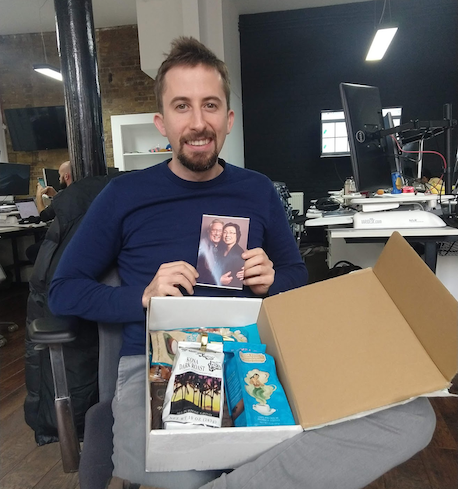
On March 6th, 2019, Ken floated the idea of converting Irving Chernev’s 1962 classic Practical Chess Endings to Algebraic notation. Then on June 20th, 2019, I was asked to be a co-author, to which I agreed.
Because there is no digitised version of the existing book (although there is an image-only scanned version on Google Books), Ken had to do the complete digitising effort himself, which has been an arduous process.
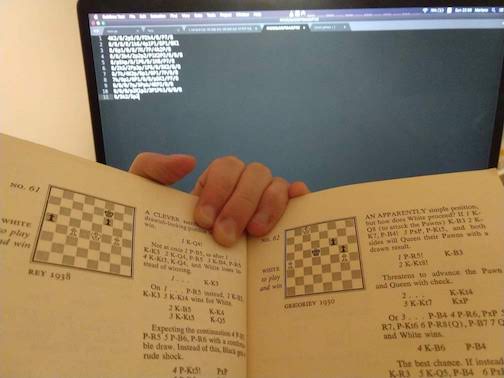
However, thanks to the chess engine available and the long hours sitting at the computer, Ken was able to find and fix countless errors in the original publication. In turn, I was able to produce a website counterpart to the book where one can browse through the games by looking at an actual board and watching the endings unfold.
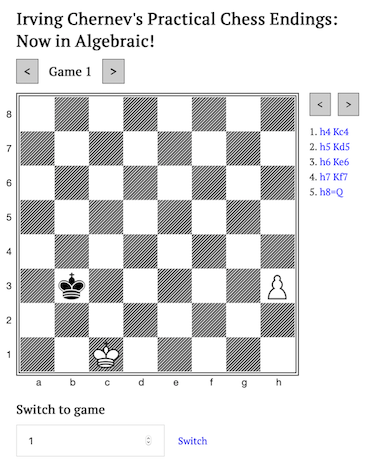
Despite the many lost weekends and the long nights figuring out obscure technical issues, this has been a unique and exciting 5-year experience, and I’m very proud of sharing the unlikely story of how an American aerospace engineer in his 80s and an Argentine software engineer in his 30s with a common passion found each other on the Internet and published a chess book together; a story worth sharing.